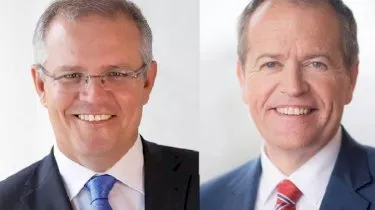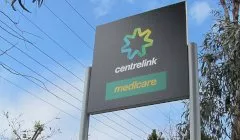Save
Tax policies pose hurdles to Labor’s pre-election traction
Labor’s tax policies are proving a dampener on their hopes with winning over the accounting community, according to new polling.
Tax policies pose hurdles to Labor’s pre-election traction
Labor’s tax policies are proving a dampener on their hopes with winning over the accounting community, according to new polling.

A straw poll of 1,207 accountants – conducted by sister title Accountants Daily – has revealed that 82.1 per cent of respondents believe the Australian Liberal Party will deliver better tax policies for Australia.
In contrast, the latest Ipsos poll shows Labor leading the Liberal-National Coalition 51-49. In December, Labor held a lead of 54-46.
The opposition’s plan to end cash refunds for excess dividend imputation credits has drawn flak, with clients set to change their investment mix. You can read more about this proposal here.
Small business clients who use discretionary trusts are also set to feel the pinch by Labor’s plan to introduce a minimum 30 per cent tax rate for discretionary trust distributions to adults. CA ANZ believes a carve-out for small businesses should exist and has called for greater transparency on details of the proposal.

Proposed restrictions on negative gearing, now confirmed to apply across the board to all investments when it was previously thought to be limited to property investment, have also been highly debated. You can read more about this proposal and how it impacts you here.
Tax experts believe the move will add complexity to the system due to a number of carve-outs and will add a new category of tax loss – the investment loss.
Labor’s popular plans
As an alternative to the government’s dumped corporate tax rate cut, Bill Shorten has pledged to introduce the Australian Investment Guarantee – a 20 per cent immediate deduction of any new eligible asset worth more than $20,000, with the remaining 80 per cent depreciated over the effective life from the first year.
The measure will be made available to all businesses regardless of size and will be made a permanent feature of the tax system.
The move has been considered a more “business-friendly” initiative compared to the government’s current instant asset write-off, which is only available to small businesses, runs on a one year extension, and only recently bumped up to a $25,000 cap.
Labor has also moved to accelerate the already legislated tax cuts for business under $50 million that will see those companies facing a tax rate of 26 per cent by 2020–21 before finally dropping down to 25 per cent in 2021–22.
Labor also plans to deal with housing affordability by halving the CGT discount down to 25 per cent, a move supported by the Australian Housing and Urban Research Institute and various tax experts.

Tax saving
$20,000 instant asset write-off extension welcomed, but calls for broader support grow
The Australian government's decision to extend the $20,000 instant asset write-off into the next financial year has been met with approval from business leaders. However, there are growing calls for ...Read more

Tax saving
The downsizer dividend: How targeted tax levers could unlock housing supply in Australia
A call by Raine & Horne to incentivise seniors to move to smaller homes has kicked off a wider policy conversation that reaches well beyond real estate. If designed well, a targeted package could ...Read more

Tax saving
Raine & Horne's bold move could unlock housing supply but what are the hidden risks
Raine & Horne’s call for targeted tax incentives to encourage empty nesters to ‘rightsize’ isn’t just another sector wish list; it’s a potential lever to free up family homes, ease rental ...Read more

Tax saving
From annual check-ups to always‑on: how modern portfolio reviews unlock after‑tax alpha
The era of once‑a‑year portfolio check‑ins is over. Continuous, tech‑enabled reviews now drive returns through tax efficiency, risk control and behavioural discipline—especially in a high‑rate ...Read more

Tax saving
Navigating tax laws for capital gains in 2023
The landscape of Australian tax laws surrounding capital gains is ever-changing, with 2023 being no exception. Read more

Tax saving
What you need to know about the tax implications of crypto
One million Aussies are now invested in crypto, but many have not thought about how these investments will affect them at tax time. Read more

Tax saving
Welfare overhaul could give recipients a leg-up
Australia’s Centrelink recipients who’ve been doing it tough are in for a potentially easier time if the federal government pursues ambitious reforms that could provide sturdier safety nets. Read more

Tax saving
Students should think twice before tapping into their super
Former students might want to think carefully before they look to take advantage of the federal government’s biggest first home buyer incentive. Read more

Tax saving
$20,000 instant asset write-off extension welcomed, but calls for broader support grow
The Australian government's decision to extend the $20,000 instant asset write-off into the next financial year has been met with approval from business leaders. However, there are growing calls for ...Read more

Tax saving
The downsizer dividend: How targeted tax levers could unlock housing supply in Australia
A call by Raine & Horne to incentivise seniors to move to smaller homes has kicked off a wider policy conversation that reaches well beyond real estate. If designed well, a targeted package could ...Read more

Tax saving
Raine & Horne's bold move could unlock housing supply but what are the hidden risks
Raine & Horne’s call for targeted tax incentives to encourage empty nesters to ‘rightsize’ isn’t just another sector wish list; it’s a potential lever to free up family homes, ease rental ...Read more

Tax saving
From annual check-ups to always‑on: how modern portfolio reviews unlock after‑tax alpha
The era of once‑a‑year portfolio check‑ins is over. Continuous, tech‑enabled reviews now drive returns through tax efficiency, risk control and behavioural discipline—especially in a high‑rate ...Read more

Tax saving
Navigating tax laws for capital gains in 2023
The landscape of Australian tax laws surrounding capital gains is ever-changing, with 2023 being no exception. Read more

Tax saving
What you need to know about the tax implications of crypto
One million Aussies are now invested in crypto, but many have not thought about how these investments will affect them at tax time. Read more

Tax saving
Welfare overhaul could give recipients a leg-up
Australia’s Centrelink recipients who’ve been doing it tough are in for a potentially easier time if the federal government pursues ambitious reforms that could provide sturdier safety nets. Read more

Tax saving
Students should think twice before tapping into their super
Former students might want to think carefully before they look to take advantage of the federal government’s biggest first home buyer incentive. Read more













